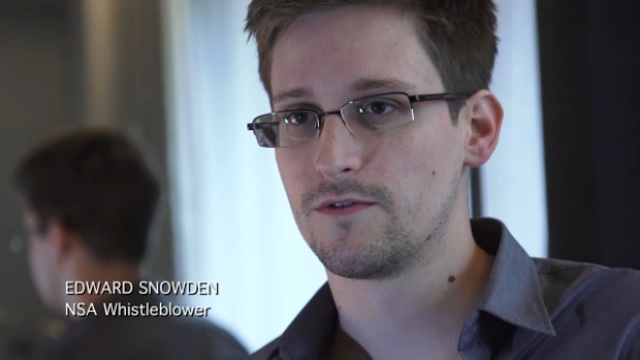SUMMARY
This is AI generated summarization, which may have errors. For context, always refer to the full article.

HONG KONG – China on Sunday, June 23, attacked the United States as an espionage “villain” after former spy Edward Snowden raised new allegations about the far-reaching extent of US cyber-snooping against Chinese targets.
The official Xinhua news agency noted that Washington was now pressing Hong Kong to extradite the former National Security Agency (NSA) contractor after he fetched up in the Chinese territory last month.
But the US government first owes the world an explanation, it said, as a prominent Hong Kong lawmaker noted that the territory has the legal right to resist an extradition request made for political reasons.
In the latest revelations published by Hong Kong’s Sunday Morning Post, Snowden said the NSA was hacking Chinese mobile phone companies to gather data from millions of text messages.
He said US spies have also hacked the prestigious Tsinghua University in Beijing — home to one of six “network backbones” that route all of mainland China’s Internet traffic — and the Hong Kong headquarters of Pacnet, which operates one of the Asia-Pacific region’s largest fibre-optic networks.
“These, along with previous allegations, are clearly troubling signs,” Xinhua said in a commentary.
“They demonstrate that the United States, which has long been trying to play innocent as a victim of cyber attacks, has turned out to be the biggest villain in our age,” it said.
The United States slapped an arrest warrant on Snowden Friday, June 21, and White House National Security Advisor Tom Donilon said the charges “present a good case for extradition under the treaty, the extradition treaty between the United States and Hong Kong”.
“Hong Kong has been a historically good partner of the United States in law enforcement matters, and we expect them to comply with the treaty in this case,” he told CBS Radio News on Saturday, June 22.
There was no immediate comment from authorities in semi-autonomous Hong Kong, but the government and police have said that the law will take its course.
And that, experts say, could take months if not years if Snowden appeals against any extradition ruling by a Hong Kong court. Beijing, meanwhile, has the right ultimately to intervene.
Xinhua noted Washington had set the extradition process in train.
“But for other countries, Washington should come clean about its record first. It owes too an explanation to China and other countries it has allegedly spied on. It has to share with the world the range, extent and intent of its clandestine hacking programs,” it said.
Pro-Beijing Hong Kong lawmaker Regina Ip, a former secretary for security who sits on the local government’s Executive Council, said protections for political asylum-seekers were written into the US extradition treaty in “black and white”.
Washington may threaten Hong Kong with a withdrawal of visa-free access to the United States for its residents, she said on the Commercial Radio station.
But Ip emphasized: “We have laws, and the United States should also be aware of it.”
The Sunday Morning Post said that Snowden, who turned 30 on Friday, remained “safe” in Hong Kong and had not been detained by police after he was charged in the United States with theft and espionage.
Abandoning his well-paid job as an intelligence technician in Hawaii, Snowden came to Hong Kong on May 20 with a cache of documents detailing the reach of NSA operations around the world.
“The NSA does all kinds of things like hack Chinese cell phone companies to steal all of your SMS data,” Snowden said in the Post interview, which the newspaper said was conducted on June 12 and released after it had scrutinized and clarified his claims.
His claims about Pacnet followed a report in the Guardian in which he claimed the British government’s electronic eavesdropping agency GCHQ had gained secret access to fibre-optic cables carrying global Internet traffic and telephone calls, and was sharing the information with the NSA.
Snowden said in the Post interview that Tsinghua University, which counts China’s President Xi Jinping and his predecessor Hu Jintao among its graduates, was the target of extensive NSA hacking.
The university, whose network backbone handles Internet data from millions of Chinese citizens, was breached as recently as January, he was quoted as saying.
According to the Post report, the NSA in 2009 also attacked Pacnet, whose fibre-optic network stretches across 46,000 kilometers (28,750 miles) in 13 countries ranging from Singapore to Japan via Hong Kong and China.
US administration officials say the NSA’s overall surveillance has helped thwart up to 50 planned extremist attacks, some of them on US soil, by allowing US agents to track calls and messages to enemy operatives. – Rappler.com
Add a comment
How does this make you feel?
There are no comments yet. Add your comment to start the conversation.